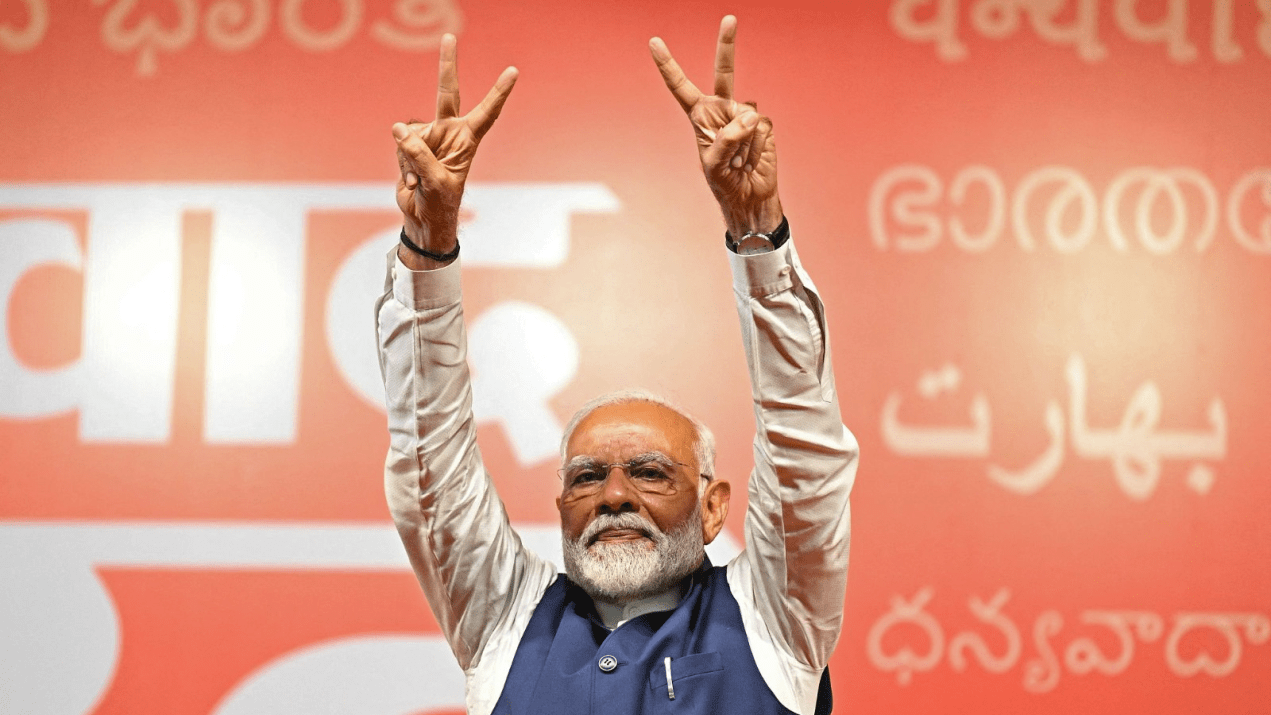
As elections ended in India, Prime Minister Narendra Modi secured his third term. Although the lower-than-expected voter turnout generated anxiety within the Bharatiya Janata Party (BJP) and led its candidates to further harden the party’s Hindu nationalist rhetoric, the BJP’s Hindutva ideology has not resonated across the country, especially in the south. In most states, campaigns were dominated by local political and economic concerns, such as youth unemployment and inflation.
But the idea of reorganizing India as a strong Hindu state is one of the most powerful reasons for Modi’s popularity among his followers. Modi’s third term will continue to put pressure on the country’s secular credentials as the government pursues its Hindu nationalist agenda, eroding the separation between state and religion in an effort to transform India into a Hindu Nation.
What’s next in terms of foreign policy and India’s place in the world?
Whoever forms the government in India, there is a high degree of policy continuity. Instead of looking at the policies of the right-wing BJP or the left-wing Congress, the key point to consider is the strength of the mandate. In the context of foreign policy, all major political parties in India have a consistent commitment to maintaining “strategic autonomy,” which entails maintaining ties with all major poles of influence in the international system.
But campaigning on his role as a defender of the Hindu majority, his record of raising India’s global standing and his ability to govern one of the world’s fastest-growing economies, Modi and the BJP favor an assertive foreign policy and muscular that integrates with the civilizational identity of the country. So far, most of this has been naïve and rhetorical, like referring to India as “Bharat.”
Recently, India has sought to play a constructive role in the international system, from naval deployments in the Indian Ocean to protect commercial shipping from attacks to offering Indian-style approaches to addressing global issues during its G20 presidency. But there is a risk of India seeking some exemption from global norms/rules due to its self-perceived exceptional status. This will sometimes increase tension in India’s interactions with the West. But at the same time, against the backdrop of global geopolitical developments, India will continue to enjoy international goodwill as the Western world continues to seek both a democratic balance and a trade alternative to China.
India’s efforts to maintain partnerships with both the United States and Russia without becoming allies, which are strict constants of its foreign policy, will also continue. While the United States is a vital economic partner for India, a provider of critical technologies and a base for the influential and wealthy segment of the Indian diaspora, Russia remains a vital arms supplier, an important partner in nuclear energy and an indispensable balancer against United States in the context of maintaining the viability of India’s strategic autonomy.
India is a country that theoretically tries to maintain moderation in foreign policy; a country that wants to remain in an intermediate position between the poles of influence in the system. However, in practice, it is a country trying to use one against the other; a country that wants to balance China with the West, the United States with Russia, and Pakistan and Turkey with Greece-Armenia-Israel and even the United Arab Emirates-Saudi Arabia.
For example, India, which has openly expressed its desire to develop strategic closeness with Armenia in the South Caucasus and with Greece in the Mediterranean, has been making strategic calculations in a region that will face Turkish hegemony, cooperating in bilateral and multilateral arrangements in the India-Armenia-Iran and India-Armenia-Greece-France formats.
In March 2021, Indian Ambassador to Iran Gaddam Dharmendra announced India’s intention to establish an International North-South Transport Corridor connecting the Indian Ocean with Europe and Russia through the Chabahar port in Iran and Armenia. The main geopolitical objective behind India’s geostrategic ambition is to circumvent its rival Pakistan.
As a last word, it would be helpful to say the following as a sincere suggestion: India should develop a strategy keeping in mind that Turkey is leading the geopolitics of the region, and should abandon its habit of personalizing Ankara’s interactions with Pakistan or any other country with whoever has problems. If India were to abandon its futile efforts of using one country against another, it would help India build its political trust and create a stronger mutually beneficial platform in the region.
Note: this is an article republished from the media “CGTN” through a cooperation agreement between both parties for the dissemination of journalistic content. Original link.

Duygu Cagla Bayram, special commentator on current affairs for CGTN, is an India specialist based in Ankara. She has a PhD in international relations and is the author of “New Course in Troubled Waters: The Indo-Pacific and India Narrative.”
Source: https://reporteasia.com/opinion/2024/06/07/tercer-mandato-modi-india/

